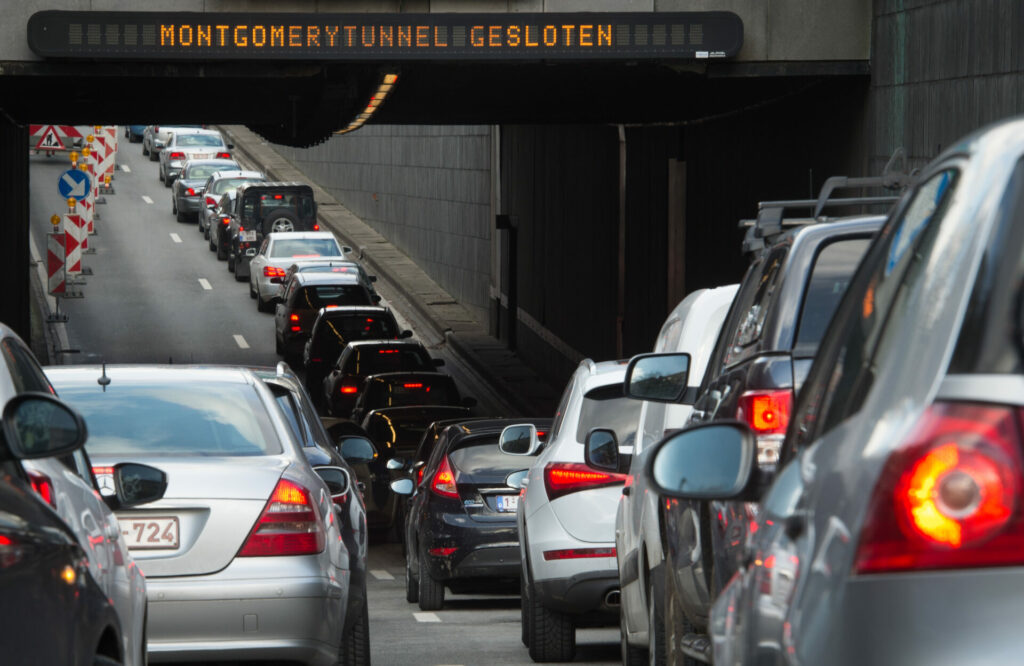Road congestion in Belgium is at an all-time high. Motorists are losing more time every day caught in traffic jams, while the financial burden is draining the country's economy.
The start of this year was marked by record-breaking traffic jams in Flanders, while Brussels entered the top ten most congested cities in the world. People driving cars in Belgium lost an average of six minutes and 32 seconds every day stuck in traffic jams in the first half of 2024. This amounts to around 40 hours over an entire year, figures from the Federation of Enterprises in Belgium (FEB) showed. Compared with the same period last year, this marks a 3% rise.
"At the end of the first half of 2024, analysis of the congestion figures shows a worsening situation on the roads for Belgian motorists," said Pieter Timmermans, CEO of the FEB. On Wednesdays, for example, congestion increased by 12% compared to 2023.
The cumulative length of traffic jams since the start of the year has reached 8,280 kilometres, up by 60% compared to 2023. A significant peak in the total length of traffic jams – almost 3,000 km – was recorded in the third week of January, with factors such as heavy snowfall and road blockages from protesting farmers disrupting public transport and causing delays.
Across the country, roads are most heavily congested at 08:00 and 17:00, with 885 km and 1,100 km of traffic jams being recorded at these times, respectively.
Burden on economy
Aside from being a nuisance to drivers, traffic congestion also has a significant cost, as it leads to reduced productivity and additional costs for businesses. The FEB puts the cost to the country's economy at €2.7 billion so far, or 0.57% of the country's GDP, a 10% increase compared with 2023. Over the entire year, congestion costs the Belgian economy €5.1 billion.
These figures should "encourage political decision-makers to continue their efforts and to deploy all the necessary levers in favour of more fluid, sustainable and multimodal mobility," said Timmermans. "These measures are essential to reduce congestion and its negative impact on society and the economy."
The organisation – and many mobility NGOs – has proposed a kilometre-based charge. "The revenue from the charge could then be reinvested directly into improving transport infrastructure and services."
The FEB's figures come days after several organisations (including BRAL and Network against Poverty, as well as universities such as VUB and UHasselt) published an open letter calling on the new governments to push for a shift to integrated (public) transport, including through a "socially just" single fare, to combat road congestion.

